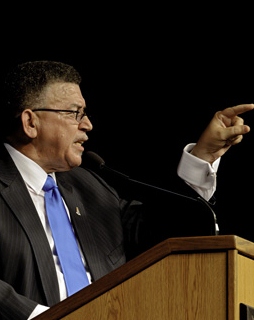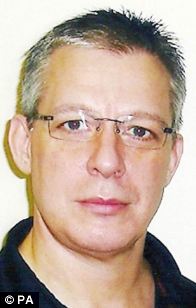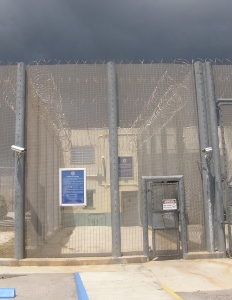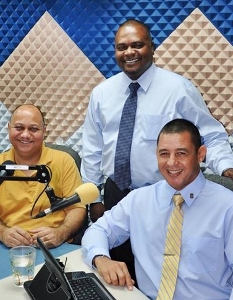Archive for July 9th, 2013

PAC conflict ahead for Mac
 (CNS): The chair of the Public Accounts Committee (PAC) has acknowledged that former premier McKeeva Bush, who is a member, may be conflicted in relation to some of the reports by the Office of the Auditor General (OAG) that will be coming before the parliamentary committee in the coming weeks. Roy McTaggart said he would be holding a meeting with PAC members and OAG staff on Thursday, ahead of the open sessions, to decide on witnesses to be called over the latest, as well as outstanding, reports. Since Bush is directly implicated in some of the reports, he may need to recuse himself, and this would be one of the points of discussion at this week’s closed door meeting.
(CNS): The chair of the Public Accounts Committee (PAC) has acknowledged that former premier McKeeva Bush, who is a member, may be conflicted in relation to some of the reports by the Office of the Auditor General (OAG) that will be coming before the parliamentary committee in the coming weeks. Roy McTaggart said he would be holding a meeting with PAC members and OAG staff on Thursday, ahead of the open sessions, to decide on witnesses to be called over the latest, as well as outstanding, reports. Since Bush is directly implicated in some of the reports, he may need to recuse himself, and this would be one of the points of discussion at this week’s closed door meeting.
“It is an issue,” McTaggart told CNS Tuesday, as he referred to the mention of the former premier in some of the reports and the allegations of political interference in connection with several OAG reports. “It may be appropriate for him to consider the conflict and it is something we will discuss.”
McTaggart said it was a unique situation to have a former premier on PAC and he would be looking for some form of precedent or guidance across the Commonwealth in countries that have the same system and how they have dealt with members of PAC who are implicated in reports or conflicted by their findings.
Thenew chair said that in addition to the latest reports from the auditor’s office, which were released last month, the committee needed to call witnesses in relation to last year’s reports on financial accountability as well as the report conducted by Auditor General Alastair Swarbrick on the management of major capital projects.
In addition, the committee has still not completed its report on its findings in relation to the controversial allegations over the paving of private property using government resources on Cayman Brac.
In the latest reports on the air ambulance, statutory authorities and Swarbrick’s review of the entire Public Management and Finance Law (PMFL), the issue of political interference under the UDP administration was noted, and in one of the reports the premier is also cited directly as interfering with the ground handling service license at the airport, which has had an impact on air ambulance services.
Not only that, the former premier has publicly called out the auditor general as one of the many people he believes has conspired against him to undermine his political future. Bush has pulled no punches when it comes to making it clear how he feels about Swarbrick, which could make for uncomfortable working conditions now that Bush is a member of the legislative committee tasked with scrutinising the findings of Swarbrick and his team.
McTaggart said he would be seeking some advice on how to handle the reports where the former premier is directly involved and he hoped to be setting a date to call witnesses for all of the outstanding reports before the end of the summer.
The OAG has also published its proposed three year performance audit plan, and Swarbrick is asking the legislators and members of the public to provide input. In a release from his office Thursday, he said the plan would be finalized after a consultation process, which will give members of the Legislative Assembly as well as the man in the street an idea of what the office hopes to report on over the next three years and provide a roadmap for itswork
Swarbrick said he had carried out the same consultation process in 2011 and found it to be a very useful way to get the information he needed to prepare the plan.
“I believe the public is in an excellent position to provide input into our plan,” said Swarbrick. “Their perspective on how well government programmes are run is important and I welcome the public's comments.”
The consultation document identifies a number of potential audit topics that the auditor general will cover by conducting performance audits. He said that once it is finalized, the plan could still change from time to time depending on future events and consideration of requests for audit work to be conducted by government officials or the Public Accounts Committee. The final say, however, about what audits are conducted by the OAG rests directly with the auditor general himself.
The consultation will run until 31 August 2013 and feedback can be provided by either emailing auditorgeneral@oag.gov.ky or writing to the Auditor General at PO Box 2583, Grand Cayman KY1-1103, CAYMAN ISLANDS. The paper is available in PDF format at www.auditorgeneral.gov.ky and posted below.
More information can be obtained by contacting Martin Ruben at the OAG at (345)244-3206.

Human Rights court rules against life imprisonment
 (Daily Mail): Justice Secretary Chris Grayling today launched a furious attack on European judges who ruled Britain's most notorious murderers could not be told to die in jail because it breaches their human rights. The Tory minister said the original authors of the Human Rights Convention 'would be turning in their graves' at the ruling which means dozens of killers could launch bids for freedom. Judges in Strasbourg ruled locking up murderers without any prospect of being released was unlawful. The extraordinary legal challenge was brought by murderer Jeremy Bamber and two other killers, Douglas Vinter and Peter Moore, who claim that condemning them to spend the rest of their lives behind bars without a review is cruel, inhuman and degrading.
(Daily Mail): Justice Secretary Chris Grayling today launched a furious attack on European judges who ruled Britain's most notorious murderers could not be told to die in jail because it breaches their human rights. The Tory minister said the original authors of the Human Rights Convention 'would be turning in their graves' at the ruling which means dozens of killers could launch bids for freedom. Judges in Strasbourg ruled locking up murderers without any prospect of being released was unlawful. The extraordinary legal challenge was brought by murderer Jeremy Bamber and two other killers, Douglas Vinter and Peter Moore, who claim that condemning them to spend the rest of their lives behind bars without a review is cruel, inhuman and degrading.

Mandatory remand HR test
 (CNS): The legal team representing Brian Borden, who is accused of killing Robert Mackford Bush in September 2011 in a West Bay gang-related shooting, are testing the legality of their client’s continued remand in jail before his trial in accordance with the mandatory provision in the law, which they believe contradicts the bill of rights. A petition in the Grand Court filed by the local firm last month is not only seeking the release of their client on bail until the trial but also a decision from the court that the current bail law is incompatible with the country’s bill ofrights. If successful, the decision could see the mandatory remand of all murder suspects overturned.
(CNS): The legal team representing Brian Borden, who is accused of killing Robert Mackford Bush in September 2011 in a West Bay gang-related shooting, are testing the legality of their client’s continued remand in jail before his trial in accordance with the mandatory provision in the law, which they believe contradicts the bill of rights. A petition in the Grand Court filed by the local firm last month is not only seeking the release of their client on bail until the trial but also a decision from the court that the current bail law is incompatible with the country’s bill ofrights. If successful, the decision could see the mandatory remand of all murder suspects overturned.
Borden (27) will not go to trial until January next year as a result of various legal issues concerning the case, which caused the matter to be persistently delayed. This means that by the time of the trial, if he is not released, the West Bay man will have been imprisoned without trial for more than 18 months because, despite the presumption of innocence, Cayman law mandates that anyone charge with murder must be placed on remand until trial.
According to a petition filed in the Grand Court by Priestleys, the firm representing Borden, who has been in jail since his arrest in August 2012, the defendant was refused bail because the current law states that a person accused of murder is not entitled to it.
However, the lawyers point to the Bill of Rights, Freedoms and Responsibilities, which stipulates in Article 5 that no one shall be deprived by government of liberty and anyone who is arrested or detained on suspicion of a criminal offence and who is not released “shall be brought promptly before a court”, and if any person detained is not tried within a reasonable time he shall be released.
With Borden now set to serve one year and five months on remand unless he is given bail, the lawyers pressed the human rights case in the petition, submitting that section 17(2) of the Bail Law is incompatible with the Petitioner's Right to Liberty, as enshrined by Article 5(5) of the Bill of Rights.
The petition states that the mandatory remand of Borden “unlawfully interferes with the presumption of innocence by repealing the entitlement to judicial consideration of the grant of bail,” and is inconsistent with the jurisprudence on the European Convention. They also note that the current imprisonment of their client goes against the right that is at the heart of all political systems that purport to abide by the rule of law and protect individuals against arbitrary detention because he has never had a proper bail hearing.
The lawyers claim that the current law presents an arbitrary ground for refusing admittance to bail where the European Court of Human Rights has clearly recognised only five grounds for refusing bail.
These include: the risk of the defendant absconding; the risk of the defendant interfering with the course of justice; preventing crime; preserving public order; and the necessity of detention to protect the defendant.
The lawyers also argue that Borden’s detention is in breach and in violation of his Right to Liberty as enshrined by Article 5(5) of the Bill of Rights as it continues under a law which is incompatible with those rights.
Seeking a declaration that the bail law is incompatible with Article 23 and 5(5) of the Bill of Rights, the defence lawyers ask the court to find that the detention of Borden is unlawful and in violation of his Constitutional Right and that “his right to liberty cannot abrogated arbitrarily and must be subject to judicial discretion”.
The goal for the legal team is to have Borden’s bail hearing be considered on the merits of the evidence against their client, the circumstances of the case and his likelihood of jumping bail and not based on an arbitrary rule which applies to all cases without consideration of the circumstances of the case but merely based on the charges alleged.
Borden is accused of being one of two masked men who opened fire on 28-year-old Robert Mackford Bush as he sat in a car at the junction of Capt. Joe and Osbert Road and Birch Tree Hill Road on 13 September 2011. Borden was one of several men arrested in the wake of the five gang-related shootings which took place over a period of around ten days that month but he was released soon after. However, he was arrested again based on new evidence almost one year later.
Although earlier trial dates were set as a result of issues, whichare understood to relate to the crown’s case, the trial has been postponed on a number of occasions.

Elections office re-opens with cheques for staff
 (CNS): Problems with financial difficulties, the handover to a new team and the change of responsibility from the Portfolio of Internal Affairs to the Home Affairs Ministry have been addressed and the Elections Office reopened Monday with normal office hours after its temporary closure, which had raised concerns among workers and service providers. The new supervisor of elections said that his new team is now responsible for all of the outstanding bills, and the final stipend payment requests for staff were being processed and were expected to be ready for collection from the office in Smith road by Tuesday afternoon.
(CNS): Problems with financial difficulties, the handover to a new team and the change of responsibility from the Portfolio of Internal Affairs to the Home Affairs Ministry have been addressed and the Elections Office reopened Monday with normal office hours after its temporary closure, which had raised concerns among workers and service providers. The new supervisor of elections said that his new team is now responsible for all of the outstanding bills, and the final stipend payment requests for staff were being processed and were expected to be ready for collection from the office in Smith road by Tuesday afternoon.
Wesley Howell told CNS that there had been a number of issues to resolve, not least the office’s budget overspend for 2013 as a result of an election and a referendum in the same 12 month period.
“The new Supervisor of Elections team are responsible for the processing of all outstanding 2012-2013 bills for the Elections Office which was incurred by the previous administration,” Wesley Howell explained. “I am pleased to advise that the final stipend payment requests for staff are being processed by the financial staff in the Ministry of Home Affairs. It is my expectation isthat the stipends cheques for election office workers will be ready for collection for Elections Office on July 9th starting at 1pm.”
He added that payments to vendors were also expected to be processed during this week, which would allow for the books for the Elections Office under the Ministry of Home Affairs, formerly the Portfolio of Internal and External Affairs, to be closed for the year end.
“Once this process is complete and the 2012-2013 books are clear, the new Supervisor Team will be working with the fFinancial and aAdmin staff within the Portfolio of the Civil Service for the 2013-2014 budget year," Howell stated.
He explained that the delays with the post-election payments were down to normal delays with financial year end processing as well as the need to secure funds to cover the overspend by the Elections Office for the 2012-2013 financial year. In addition, the delays were compounded, Howell said, by the demands on the finance and administrative resources to execute the reshuffling of departments between ministries and portfolios, as a result of the reorganization of government since the elections.
Howell said that he expected the details of candidates' election expenses would also be completed by the end of Tuesday.
Check back to CNS for details and analysis of how much the candidates spent on their general election campaign.
Over 37% of local kids left primary school fat
 CNS): According to statistics released by the public health department, 208 students (37.3%) moved from the primary to high school either overweight or obese last year. And while kids are growing in girth as well as knowledge while in school, a considerable number are entering the system with weight problems. More than one third of children who entered government primary schools in September 2012 did so carrying too much weight, officials revealed this week. Of the 530 students screened by public health practitioners at the start of the 2012/13 school year, 177 were either obese or overweight. Officials explained that children are screened at the start of school to identify possible weight problems with the goal of offering health programmes.
CNS): According to statistics released by the public health department, 208 students (37.3%) moved from the primary to high school either overweight or obese last year. And while kids are growing in girth as well as knowledge while in school, a considerable number are entering the system with weight problems. More than one third of children who entered government primary schools in September 2012 did so carrying too much weight, officials revealed this week. Of the 530 students screened by public health practitioners at the start of the 2012/13 school year, 177 were either obese or overweight. Officials explained that children are screened at the start of school to identify possible weight problems with the goal of offering health programmes.
However, there are indications that the number of kids leaving school fat is surpassing the already hefty number entering overweight, which is a significant concern for health providers, education professionals, parents and ultimately the young people who are starting off their education with significant health issues.
While being overweight seems to be the main problem, there is also a concern that on average around 7% of kids come to school underweight. Overall less than 60% of children in Cayman are coming to school with a healthy, normal weight for their age.
Officials said that they use Body Mass Index as a screening tool to identify possible weight problems for children and the CDC and the American Academy of Pediatrics (AAP) recommend its use to screen for overweight and obesity in children as young as two years old.
“Body Mass Index (BMI) is useful to offer appropriate guidance and counselling to parents of overweight and obese children. Also the data is utilized in offering weight reduction programs,” public health officials stated.
The percentage of overweight children entering schools in the Cayman Islands during the period 2009-2012 remained relatively consistent. However, school year 2010-2011 showed a higher percentage of obese children (23.3%). 2010-2011 also had the lowest number of students who were underweight (4.9%). Again there has been an increase of obese children from 13.7% in 2011/12 to 17.4% in 2012/13.
The percentage of overweight children has been gradually increasing, and while there has been a decline of obese children, which may point to a healthier trend, Director of Public Health Dr Kiran Kumar notes that there is a pressing need to reduce the number of overweight children and to control obesity in school-entry with plans afoot for an awareness campaign.
Health experts have also warned that childhood obesity is a major public health issue because it leads to the non-communicable diseases such as diabetes, high blood pressure and heart disease, which have all been identified as the main health problems in local adults.
See tables below showing test results for school entry and pre-high school.

63% of Shetty workers local
 (CNS): There are currently 220 workers on the construction site of the first phase of the Health City Cayman Islands, the tourist medical facility being developed by renowned Indian heart surgeon, Dr Devi Shetty, in East End. Of those, just over 63% are Caymanians, Gene Thompson, the Health City’s project director, told a group of visitors from the Chamber of Commerce during a recent tour of the site. In addition to the 140 Caymanians who are employed there, Thompson said more than 20 independent equipment operators working on the project are all Caymanian. The project boss also revealed that the hospital is on target to open in February of next year.
(CNS): There are currently 220 workers on the construction site of the first phase of the Health City Cayman Islands, the tourist medical facility being developed by renowned Indian heart surgeon, Dr Devi Shetty, in East End. Of those, just over 63% are Caymanians, Gene Thompson, the Health City’s project director, told a group of visitors from the Chamber of Commerce during a recent tour of the site. In addition to the 140 Caymanians who are employed there, Thompson said more than 20 independent equipment operators working on the project are all Caymanian. The project boss also revealed that the hospital is on target to open in February of next year.
The Health Cityis continuing with the public outreach programme to keep the community informed of progress and provide site tours to various community leaders, associations, and groups, he said. During the tour, the Chamber members were also provided with information on several unique systems in the construction that have allowed what Thompson said was “the rapid progress, while providing the highest level or construction and strength”.
The building is being constructed to a Cat 5 hurricane standard and includes many green initiatives, including Sea Water Air Conditioning (SWAC), solar, waste recycling and reduction techniques, water harvesting, and a few other programmes.
The health facility is being built in the High Rock area of East End and promises to bring high-quality, affordable healthcare services to the Cayman Islands, based on the model developed by Shetty in India. The project is a joint venture between Narayana Hospitals of India, Shetty’s group and Ascension Health Alliance, the largest, Catholic, non-profit, healthcare organization in the United States.
Health City Cayman Islands is being built in phases over the next 15 years and will require a capital investment of around US$2 billion, officials say. Once complete, it could employ as many as 9,000 people. Construction began in February of this year on the first phase of the project, which is a 140-bed tertiary care hospital.
Chantal to swing away from Caribbean Sea
(CNS): Early predictions from the National Hurricane Centre in Miami that Tropical Storm Chantal could be heading along the southern coast of Cuba and near to the Cayman area have been revised. On the current path Chantal poses no threat to our region as the storm is now predicted to pass across the Lesser Antilles then the eastern Caribbean, heading between Puerto Rico and Hispaniola before moving along the Northeast coast of Cuba and up towards Florida. According to the NHC, at 8am on Tuesday Chantal was about 45 miles NNW of Barbados and was still speeding along at 26mph. Packing winds of 50mph, some strengthening is forecasted for Chantal, whose winds currently extend out some 90 miles from the centre.

Cash handouts won’t help
 (CNS): Two of government’s backbench MLAs made it clear Monday that they and their colleagues will not be digging into their pockets to help constituents through handouts from their salaries but will be working on broader policies to address the many issues facing a significant number of people in Cayman at present. Although Al Suckoo and Joey Hew both said they recognised the hardships that people across Cayman are suffering, $50 handouts won’t help people in the long run. Policies that will grow the economy and give everyone the opportunity to help themselves will be far better for the country as a whole than continuing the handout culture, they said.
(CNS): Two of government’s backbench MLAs made it clear Monday that they and their colleagues will not be digging into their pockets to help constituents through handouts from their salaries but will be working on broader policies to address the many issues facing a significant number of people in Cayman at present. Although Al Suckoo and Joey Hew both said they recognised the hardships that people across Cayman are suffering, $50 handouts won’t help people in the long run. Policies that will grow the economy and give everyone the opportunity to help themselves will be far better for the country as a whole than continuing the handout culture, they said.
Speaking on Radio Cayman’s Talk Today show on 7 July, the MLAs made it clear that, while they may be well paid by many people’s standards, most of the politicians who were elected to government this time around had earned far more in their previous careers and had gone into politics to make a change and not for the salary.
Referring to certain expectations of voters that, once in office, their MLAs will give physical handouts to help with light bills or other pressing financial difficulties, the two new parliamentarians said that their salaries were not sufficient to help everyone who was now in need but it didn’t mean that they would not be doing what they could in other ways to help their constituents.
“Ministers are still doing clinics and we will help wherever we can,” said Hew, who represents the people of George Town. “We all want to help; that’s why we ran for office in first place.”
He explained that by spending their time working with their ministers to develop broader policies to address the many difficulties the economic situation has created will mean that they can help more people, rather than giving hand outs to individuals or trying to deal with every specific one-off problem that is presented to them as MLAs
“We are not saying that we can’t deal with requests,” Suckoo, who was elected in Bodden Town, said. “Everyone’s need is important and we are not ignoring people but the best way to help is to develop the broader policies and for us to meet the promises made on the campaign trail, as dealing with each and every individual case won’t allow us to deal with the policy changes that are needed to help everyone.”
The two men discussed a number of issues on the government radio’s lunch time show Monday and said the new administration was now getting settled in but there was much work to be done. Promising big things to come from the PPM government, they said it had been very well received by the private sector, from which there had been an outpouring of support and offers to assist. The men also said the new government had been warmly welcomed in the government building, with the civil service offering much appreciated support.
“We have had a lot to do just getting started,” Hew said. “From the outside it might not look like much is happening but a lot is going on with a lot of things underway. We will soon be saying more but we need to get our heads wrapped around everything that needs doing as we only have four short years to get it all done,” he added.